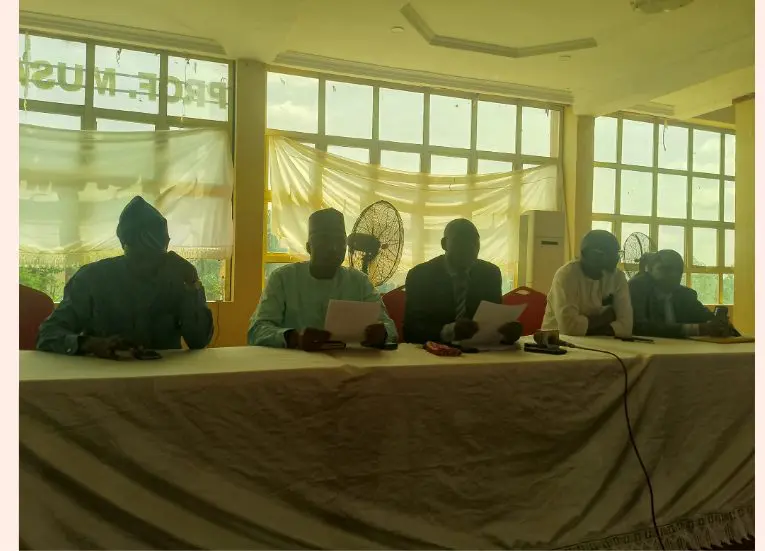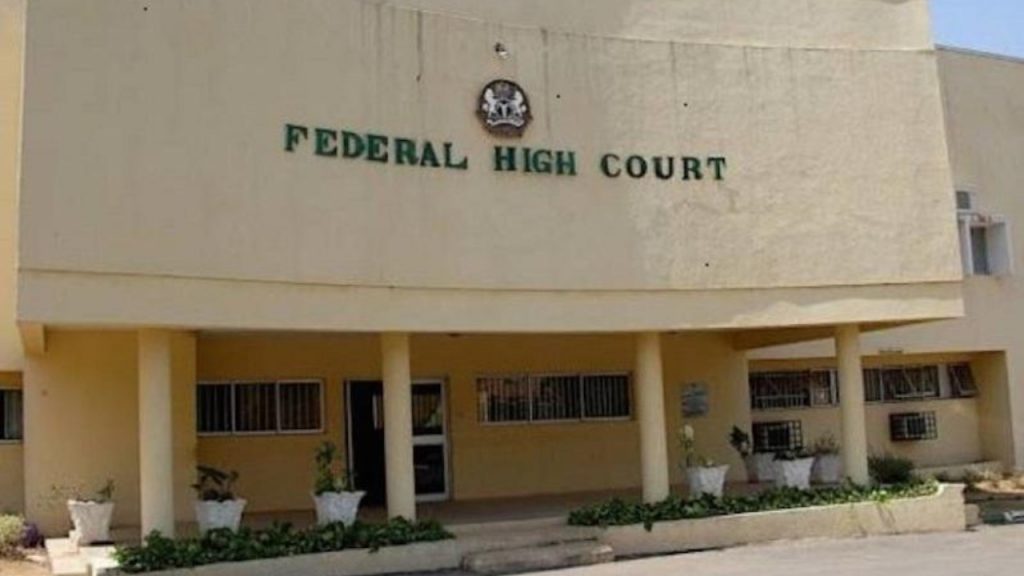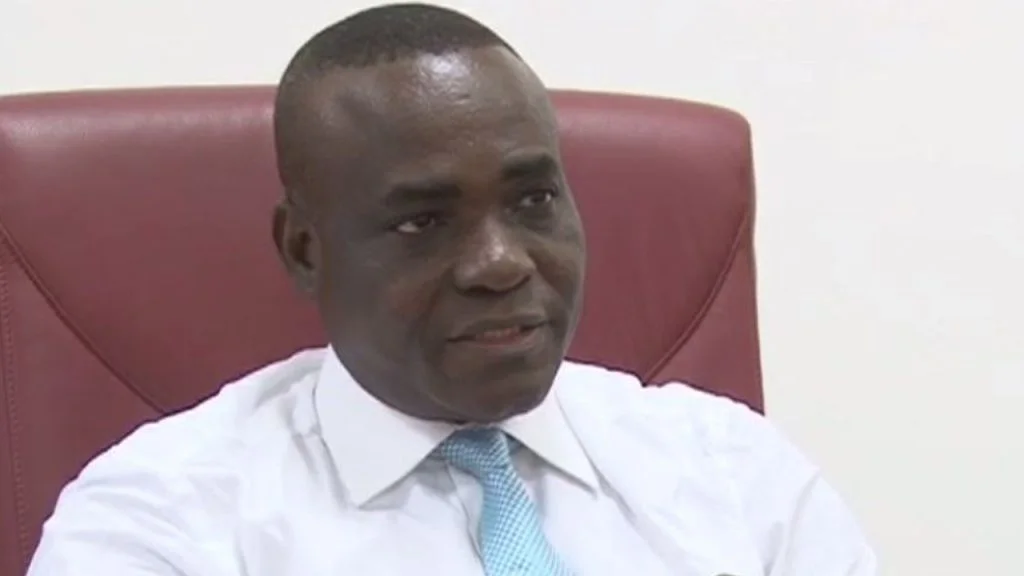News
Unknown gunmen kill monarch in Taraba

Unknown gunmen, on Thursday night, killed a third-class chief, Abdulmutalib Nuhu, at Sensani Village in the Gasol Local Government Area of Taraba State.
It was gathered that Nuhu was murdered a few hours before the hosting of the Nwonyo Fishing and Cultural Festival organized by the Taraba State Government in the Ibbi Local Government Area of the state.
DAILY POST gathered that Ibbi is the hometown of Hamisu Bala, popularly known as Wadume, the notorious convicted gun runner, who was released from prison a few days ago.
The assailants stormed Sensani village at about 9 pm on Thursday and headed straight to the palace of the traditional ruler, a few kilometres from Ibbi, the venue of the festival.
The Taraba State Government has, however, assured the people traveling for the event of adequate security during the festival.
The older brother of the slain chief, Nuhu Sanseni, told newsmen that the gunmen came on motorcycles with guns, killed his brother, and left with his phones.
“They came to the area at about 9pm last night, they went straight to his palace, shot him, and snatched his two phones. While they were going, they met with a young man who was coming on a motorcycle, they also shot and broke his leg before leaving the village,” Sansani narrated.
A senior police officer serving in Sansani revealed to our correspondent that his men were already trailing the killers.
Acting Police Public Relations Officer, for Taraba State Police Command, ASP James Lashen, when contacted, said he was still on his way to the office at the time of this report on Friday.
“I am not aware. I’m on my way to the office now, if I receive any situation report, I will inform you,” Lashen stated.
CREDIT: DAILY POST
News
Nigeria s 1999 Constitution full of flaws – Muslim lawyers association

The Muslim Lawyers Association of Nigeria, MULAN, has declared that there are many defects and flaws in the current 1999 Constitution of the Federal Republic of Nigeria.
MULAN National President, Dr Kazeem Olajide Olaniyan, made this declaration while addressing a press conference to herald the 15th annual general conference of the association on Thursday in Ibadan, the Oyo State capital.
Olaniyan stressed that Nigeria needs a homegrown Constitution that will address the current challenges facing the country.

According to him, the 1999 Constitution was drafted during the military rule and has many defects and flaws.
He noted that a homegrown will address the current problems the country is facing.
Olaniyan while speaking further, maintained that the theme of the conference, ‘National Development: The new dynamics and nuances’, was chosen so as to provide solutions to the country’s problems.
He also used the medium to appeal to the government to address the issue of fuel scarcity, food crisis and inflation in the country.
“Any Constitution Nigeria must have must be homegrown. What we have now was drafted by the military.
“There are so many defects and flaws in the 1999 constitution.
“Removal of subsidy of petroleum has effect on all of us coupled with inflation. We are now experiencing fuel scarcity.
“As we speak, if we are blaming the government, there are so many things we as people are also causing. We are also calling on the government to address the problem of food insecurity.”
News
Court adjourns trial in Nigerian Govt versus Ali Bello, others to May 27

Senator Ita Enang, former Special Adviser to the President on National Assembly Matters, attributed the failure of the Nigerian economy, the escalating debt burden, and the depreciation of the national currency, the naira, to the National Assembly. Enang made these remarks during the public unveiling of Oversight Magazine, a publication dedicated to covering parliamentary events, by former House of Representatives member Aniekan Umannah.
Enang asserted that the National Assembly’s inability to pose pertinent inquiries was accountable for the economic challenges. Having chaired both the House and Senate Committees on Rules and Business, Enang criticized the chambers for never releasing reports on their oversight duties as required, nor for questioning the nation’s debt.
He highlighted that while lawmakers frequently conduct oversight visits to scrutinize the activities of Ministries, Departments, and Agencies, they neglect to present their findings for deliberation on the parliamentary floor. According to him, the executive’s suboptimal performance, at both state and national levels, can be attributed to the deficient oversight of the National Assembly and state Houses of Assembly nationwide.
Enang emphasized the importance of the oversight function, stating that it allows for monitoring the utilization of budget allocations, assessing project progress, and planning future budgets accordingly. He concluded that the failure of the Nigerian economy, the devaluation of the naira, and the excessive debt accumulation are ultimately the responsibility of the National Assembly.
News
NASS responsible for failure of Nigeria’s economy, rising debt – Ita Enang

Senator Ita Enang, former Special Adviser to the President on National Assembly Matters, attributed the failure of the Nigerian economy, the escalating debt burden, and the depreciation of the national currency, the naira, to the National Assembly. Enang made these remarks during the public unveiling of Oversight Magazine, a publication dedicated to covering parliamentary events, by former House of Representatives member Aniekan Umannah.
Enang asserted that the National Assembly’s inability to pose pertinent inquiries was accountable for the economic challenges. Having chaired both the House and Senate Committees on Rules and Business, Enang criticized the chambers for never releasing reports on their oversight duties as required, nor for questioning the nation’s debt.
He highlighted that while lawmakers frequently conduct oversight visits to scrutinize the activities of Ministries, Departments, and Agencies, they neglect to present their findings for deliberation on the parliamentary floor. According to him, the executive’s suboptimal performance, at both state and national levels, can be attributed to the deficient oversight of the National Assembly and state Houses of Assembly nationwide.
Enang emphasized the importance of the oversight function, stating that it allows for monitoring the utilization of budget allocations, assessing project progress, and planning future budgets accordingly. He concluded that the failure of the Nigerian economy, the devaluation of the naira, and the excessive debt accumulation are ultimately the responsibility of the National Assembly.
-

 World News7 months ago
World News7 months agoWhat we know about Israel’s war with Hamas
-

 Sports7 months ago
Sports7 months agoLaLiga: Everyone want to play with him – Vinicius on player Real Madrid should sign
-

 World News7 months ago
World News7 months agoIran calls on Islamic, Arab countries to confront Israel
-

 Tech7 months ago
Tech7 months agoTop 10 AI Skills to Learn in 2023
-

 Entertainment7 months ago
Entertainment7 months agoBET Hip-Hop Awards: Black Sherif wins big as Burna Boy loses seven nominations
-

 Entertainment7 months ago
Entertainment7 months ago‘Black Panther’ star Lupita Nyong’o breaks up with boyfriend, Selema Masekela
-

 ICT8 months ago
ICT8 months agoApple Bows To EU, Unveils iPhone With USB-C Charger
-

 World News7 months ago
World News7 months agoZelensky seeks defences for winter on visit to NATO


